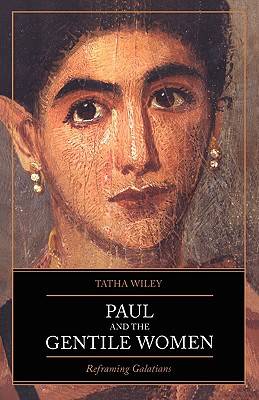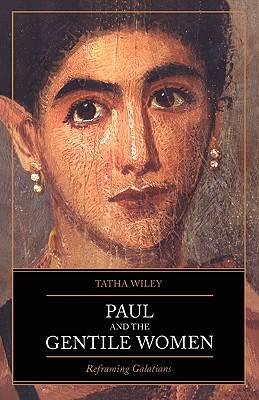
- Afhalen na 1 uur in een winkel met voorraad
- Gratis thuislevering in België vanaf € 30
- Ruim aanbod met 7 miljoen producten
- Afhalen na 1 uur in een winkel met voorraad
- Gratis thuislevering in België vanaf € 30
- Ruim aanbod met 7 miljoen producten
Zoeken
Omschrijving
For hundreds of years, Paul's letter to the Galatians has been a flashpoint of controversy among Christians. Why did Paul write the letter, and what was at issue in the controversy over Torah observance, particularly male circumcision? Has the letter with its classic contrast of faith in Christ and works of the law served to divide Jews from Christians and Christians from one other? Radically reframing the debate, Tatha Wiley's fresh approach decisively shifts the Galatian question to focus on the social consequences of Paul's bitter disagreement with the circumcision preachers and specifically the implications of the dispute for Gentile women in the community. Wiley maintains that Paul's argument of equality in Christ was directed to and for the situation of women, whose newly won status was jeopardized by the preaching of Paul's opponents. By looking at the issue of circumcision from the angle of the Gentile women of Galatia, Wiley cuts to the core concerns of the dispute: gender privilege, religious authority, and the life-changing implications of Christian commitment.
Specificaties
Betrokkenen
- Auteur(s):
- Uitgeverij:
Inhoud
- Aantal bladzijden:
- 168
- Taal:
- Engels
Eigenschappen
- Productcode (EAN):
- 9780826417077
- Verschijningsdatum:
- 30/03/2005
- Uitvoering:
- Paperback
- Formaat:
- Trade paperback (VS)
- Afmetingen:
- 140 mm x 215 mm
- Gewicht:
- 217 g

Alleen bij Standaard Boekhandel
+ 196 punten op je klantenkaart van Standaard Boekhandel
Beoordelingen
We publiceren alleen reviews die voldoen aan de voorwaarden voor reviews. Bekijk onze voorwaarden voor reviews.








